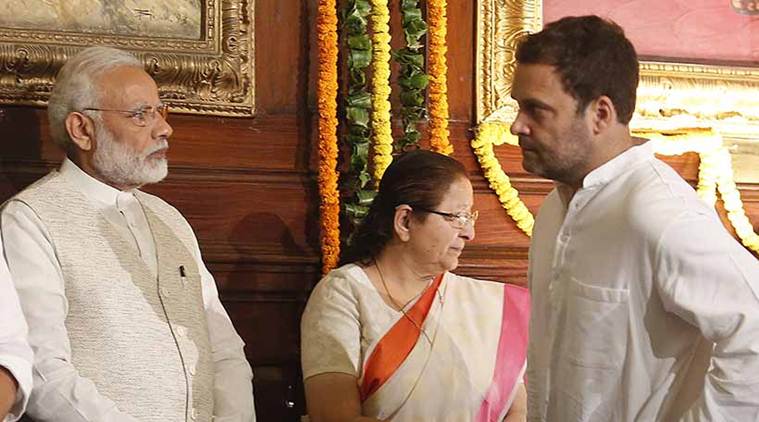
When I am reviled for having supported Narendra Modi, and this happens often these days, I respond by asking if I should support Rahul Gandhi instead. Those are the two real choices before Indian voters today. You could vote for those who have ruled India (badly) for more than half a century or you could vote for a man who continues to promise change and prosperity. If Narendra Modi’s most ardent supporters are no longer certain about what he truly stands for, it is because in his wake he has brought a very ugly kind of Indian whose political motivation is hate. I witness this first hand on social media every time I write anything critical about Modi. Currently, the hatred has reached epic proportions.
This is because I said in last week’s column that giving Pragya Thakur a safe ticket to the Lok Sabha was wrong. Hindutva harridans who are the most venomous of Modi’s supporters accused me of everything imaginable, including of (horror of horrors!) living in Lutyens Delhi. Yes, I have lived in this part of our capital city since my childhood, when it was a genteel enclave of wide, tree-lined avenues and sprawling bungalows. And, not a hated symbol of political power. This is because my grandfather was one of the contractors who helped Edwin Lutyens build New Delhi.
What intrigued me most, though, was the charge that I am confused about my political ‘loyalties’. That I am a traitor to the ‘ideological Right’. Only people with no understanding of politics believe that a political columnist should have loyalties to a person or a political party. In the ranks of Modi’s followers, it has to be said, there are mostly people who have more understanding of hating Muslims than of the ‘Right wing’ ideology they claim to profess. In their very narrow worldview, if you hate Muslims, then you belong, but if you speak out against innocent Muslim dairy farmers and cattle traders being lynched, then you are a Pakistani. So those who vote once more for Modi will have to keep in mind that he brings with him some very bad people with very bad ideas.
They might end up voting for him anyway because the other side looks just as bad, albeit for different reasons. Rahul has taken to lying so much about Modi’s “15 rich friends” that he gets his maths mixed up in every speech. He has also taken to making the utterly absurd suggestion these days that he will bring back the money that Modi has “given” Anil Ambani, Vijay Mallya, Nirav Modi and Lalit Modi, and that it is this that will pay for his NYAY. Lalit Modi has taken serious offence and is running a campaign against the Gandhi family whose message is that they are the most corrupt people in India. But, even assuming that it is somehow possible to squeeze thousands of crore of rupees out of these men, how does the Congress president believe that this is enough to pay for a scheme that is likely to cost Indian taxpayers more than any other welfare scheme to date?
What is even more worrying is the manner in which Rahul has turned his election campaign into a war between rich and poor Indians. By the way, if despite what he says about them, big Indian businessmen continue to finance the Congress, then they deserve what they get. The point, though, is that in vilifying rich Indians, Rahul is hinting that he would like to take us back to that ‘glorious’ socialist era over which his grandmother presided, when rich Indians paid taxes as high as 97%. If he gets the chance to implement his ‘vision of India’, then it will not be long before India ends up in the same basket as Venezuela. It is a fate too awful to contemplate, but it could happen.
What worries me is that the Congress president has not noticed that in the golden age of socialism, that his grandmother supposedly bequeathed India, the only people who had access to basic necessities were officials. I have horrible memories of begging some political friend or official for a gas connection or a telephone and then feeling eternally obliged to them.
They, of course, had everything. Fine houses in hated Lutyens Delhi, free gas connections, free telephone services, free travel on State-owned airlines and railways and free domestic staff for their splendid government houses. For the rest of us, there were endless queues and endless shortages of everything. I can remember my parents queueing for 10 years to buy a Fiat car.
So those are our choices. Both seem risky. But, we must celebrate because we participate in the largest democratic exercise on the Planet. If only this celebration of democracy did not take so very, very long.
This article first appeared in the print edition on April 27, 2019, under the title ‘The wheels of democracy’. Follow Tavleen Singh on Twitter @tavleen_singh